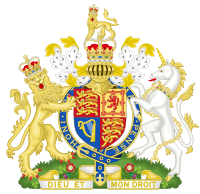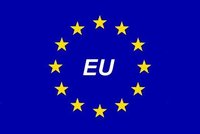Have you discovered The Alexandria Project?
 This week a new consortium was launched that may signal who will finally own the last great, unclaimed consumer computing platform – the automobile. The new organization is the Car Connectivity Consortium, and the winner is . . . well, we’ll come back to that a little later. Suffice it to say for now that the fifteen year battle to control the digital future of the automobile could be at an end, and that its resolution may tell us something about the future of the digital desktop as well.
This week a new consortium was launched that may signal who will finally own the last great, unclaimed consumer computing platform – the automobile. The new organization is the Car Connectivity Consortium, and the winner is . . . well, we’ll come back to that a little later. Suffice it to say for now that the fifteen year battle to control the digital future of the automobile could be at an end, and that its resolution may tell us something about the future of the digital desktop as well.
 As I noted last week, the British government recently came out strongly in favor of royalty free standards and active consideration of open source software in public procurement. As expected, this decision was greeted with less than universal enthusiasm. One trade group that predictably reacted negatively was the Business Software Alliance, an association that supports the robust preservation of rights in patents. The BSA had previously lobbied actively (and successfully) to delete a similar position from the new version of the European Interoperability Framework (EIF).
As I noted last week, the British government recently came out strongly in favor of royalty free standards and active consideration of open source software in public procurement. As expected, this decision was greeted with less than universal enthusiasm. One trade group that predictably reacted negatively was the Business Software Alliance, an association that supports the robust preservation of rights in patents. The BSA had previously lobbied actively (and successfully) to delete a similar position from the new version of the European Interoperability Framework (EIF).
According to a story posted at ZDNet.co.uk this Tuesday, the BSA released objections to the new British government policy, stating in part:
BSA strongly supports open standards as a driver of interoperability; but we are deeply concerned that by seeking to define openness in a way which requires industry to give up its intellectual property, the UK government's new policy will inadvertently reduce choice, hinder innovation and increase the costs of e-government.
 The U.K. has become the latest country to conclude that for information and communications technology (ICT) procurement purposes, “open standards” means “royalty free standards.” While apparently falling short of a legal requirement, a Cabinet Office Procurement Policy Note recommends that all departments, agencies, non-departmental bodies and “any other bodies for which they are responsible” should specify open standards in their procurement activities, unless there are “clear business reasons why this is inappropriate.”
The U.K. has become the latest country to conclude that for information and communications technology (ICT) procurement purposes, “open standards” means “royalty free standards.” While apparently falling short of a legal requirement, a Cabinet Office Procurement Policy Note recommends that all departments, agencies, non-departmental bodies and “any other bodies for which they are responsible” should specify open standards in their procurement activities, unless there are “clear business reasons why this is inappropriate.”
 For some time now, I have been meaning to write a series of blog posts setting forth my views on best practices in forming and governing open source foundations. Why? Because despite the increasing reliance of just about every part of our modern world (government, finance, defense, and so on) on open source software (OSS) and Free and Open Source Software (FOSS), there has been very little written on the subject.
For some time now, I have been meaning to write a series of blog posts setting forth my views on best practices in forming and governing open source foundations. Why? Because despite the increasing reliance of just about every part of our modern world (government, finance, defense, and so on) on open source software (OSS) and Free and Open Source Software (FOSS), there has been very little written on the subject.
That means that neither a community nor a corporation has much to refer to in creating the kind of governance structure most likely to ensure that the intentions of the founders are carried out, that the rights of contributors are respected, and that the code upon which end users will rely is properly maintained into the future.
The following is the introduction to the Feature Article in the most recent issue of Standards Today, the free "eJournal of News, Ideas and Analysis" that I have been writing for the last seven years. You can read the entire article here, and sign up for a free subscription here.
 For more than 100 years, the United States has been the exemplar of the "bottom up" model of standards development. Under this methodology, society relies on the private sector to identify standards-related needs and opportunities in most sectors, and then develops responsive specifications. Government, for its part, retains ultimate control over domains such as health, safety, and environmental protection, but preferentially uses private sector standards in procurement, and also references private sector standards into law when appropriate (e.g., as building codes).
For more than 100 years, the United States has been the exemplar of the "bottom up" model of standards development. Under this methodology, society relies on the private sector to identify standards-related needs and opportunities in most sectors, and then develops responsive specifications. Government, for its part, retains ultimate control over domains such as health, safety, and environmental protection, but preferentially uses private sector standards in procurement, and also references private sector standards into law when appropriate (e.g., as building codes).
Until recently, government agencies in the United States commonly developed their own standards for procurement purposes. This era of separate but equal standards creation officially came to an end with the passage of the National Technology Transfer and Advancement Act of 1995. With this legislation, Congress directed government agencies to use "voluntary consensus standards" (VCSs) and other private sector specifications wherever practical rather than "government unique standards," and to participate in the development of these standards as well. In 1998, Office of Management and Budget Circular A-119 was amended to provide additional guidance to the Federal agencies on complying with the NTTAA.
 Over the last few months, I've frequently pointed out the vulnerability of important open source projects that are supported and controlled by corporate sponsors, rather than hosted by independent foundations funded by corporate sponsors. One of the examples I've given is SUSE Linux, which has been hosted and primarily supported by Novell since that company acquired SuSE Linux AG in 2003. Novell, as you know, is expected to be acquired by a company called Attachmate a few weeks from now, assuming approval of the transaction by the Novell stockholders and by German competition regulators.
Over the last few months, I've frequently pointed out the vulnerability of important open source projects that are supported and controlled by corporate sponsors, rather than hosted by independent foundations funded by corporate sponsors. One of the examples I've given is SUSE Linux, which has been hosted and primarily supported by Novell since that company acquired SuSE Linux AG in 2003. Novell, as you know, is expected to be acquired by a company called Attachmate a few weeks from now, assuming approval of the transaction by the Novell stockholders and by German competition regulators.
Recently, the future of the SUSE Linux Project (as compared to the Novell commercial Linux distribution based on the work of that project) has become rather murky, as reported by Pamela Jones, at Groklaw. Apparently, Novell is facilitating some sort of spin out of the Project, which is good but peculiar news.
 The pace of technology is wondrous indeed. No corner of our lives seems safe from digital invasion, from picture frames to pasta makers. For years now, we have been threatened with Internet-enabled refrigerators, and perhaps 2011 will see it so.
The pace of technology is wondrous indeed. No corner of our lives seems safe from digital invasion, from picture frames to pasta makers. For years now, we have been threatened with Internet-enabled refrigerators, and perhaps 2011 will see it so.
Nor is the process likely to stop there. Soon, we are told, our homes will become infested by "mesh networks" of sensors, each one whispering information surreptitiously to its neighbor, in order to render our lives more energy efficient. But in so doing, they will observe our every move and report it to heavens knows whom.
Have you discovered The Alexandria Project?
 Last Thursday the European Commission took a major step forward on the “openness” scale. The occasion was the release of a new version of the European Interoperability Framework (EIF) which definitively endorsed the use of open source friendly standards when providing “public services” within the EU. This result was rightly hailed by open source advocates like Open Forum Europe.
Last Thursday the European Commission took a major step forward on the “openness” scale. The occasion was the release of a new version of the European Interoperability Framework (EIF) which definitively endorsed the use of open source friendly standards when providing “public services” within the EU. This result was rightly hailed by open source advocates like Open Forum Europe.
But the EC took two steps backward in every other way as it revised its definition of "open standards," presumably reflecting IT industry efforts (e.g., by the Business Software Alliance) to preserve the value of software patents.
In this blog entry, I’ll review the seven-year long process under which the “European Interoperability Framework” (EIF) first set a global high water mark for liberalizing the definition of open standards, and then retreated from that position.
The following is a position statement I contributed to an on-line forum that will launch at 11 EST today focusing on policy reform within the Chinese standardization system. You can join in that discussion here
![By Georgio (Own work (Photo personnelle)) [GFDL (www.gnu.org/copyleft/fdl.html) or CC-BY-SA-3.0 (www.creativecommons.org/licenses/by-sa/3.0/)], via Wikimedia Commons](https://www.consortiuminfo.org/wp-content/uploads/2019/11/Great-Wall-225.jpg) A variety of constituencies from the West have taken it upon themselves to reach out to China to "educate" the Chinese about the existing global standards development infrastructure, and to urge them to take part in that infrastructure in the same way as do other countries. Clearly, having China, with a single national vote, participate in ISO, IEC and ITU would be best for the status quo players that have become skillful in participating in those organizations through decades of effort. It's interesting to ask, however, whether that course of action, without more, would truly be best for China and its people.
A variety of constituencies from the West have taken it upon themselves to reach out to China to "educate" the Chinese about the existing global standards development infrastructure, and to urge them to take part in that infrastructure in the same way as do other countries. Clearly, having China, with a single national vote, participate in ISO, IEC and ITU would be best for the status quo players that have become skillful in participating in those organizations through decades of effort. It's interesting to ask, however, whether that course of action, without more, would truly be best for China and its people.
If I were a policy maker in China, the most obvious question that I would be asking would be what strategy Chinese industry should follow as regards consortia, as well as the "Big I's." To date, China has participated primarily in the latter, and in only a few of the former (e.g., OASIS and the W3C). But China has launched a number of domestic consortia open either largely, or only, to domestic companies, to develop "home grown" standards. And that seems backwards to me.
 This week a new consortium was launched that may signal who will finally own the last great, unclaimed consumer computing platform – the automobile. The new organization is the Car Connectivity Consortium, and the winner is . . . well, we’ll come back to that a little later. Suffice it to say for now that the fifteen year battle to control the digital future of the automobile could be at an end, and that its resolution may tell us something about the future of the digital desktop as well.
This week a new consortium was launched that may signal who will finally own the last great, unclaimed consumer computing platform – the automobile. The new organization is the Car Connectivity Consortium, and the winner is . . . well, we’ll come back to that a little later. Suffice it to say for now that the fifteen year battle to control the digital future of the automobile could be at an end, and that its resolution may tell us something about the future of the digital desktop as well.
 The U.K. has become the latest country to conclude that for information and communications technology (ICT) procurement purposes, “open standards” means “royalty free standards.” While apparently falling short of a legal requirement, a Cabinet Office Procurement Policy Note recommends that all departments, agencies, non-departmental bodies and “any other bodies for which they are responsible” should specify open standards in their procurement activities, unless there are “clear business reasons why this is inappropriate.”
The U.K. has become the latest country to conclude that for information and communications technology (ICT) procurement purposes, “open standards” means “royalty free standards.” While apparently falling short of a legal requirement, a Cabinet Office Procurement Policy Note recommends that all departments, agencies, non-departmental bodies and “any other bodies for which they are responsible” should specify open standards in their procurement activities, unless there are “clear business reasons why this is inappropriate.” For some time now, I have been meaning to write a series of blog posts setting forth my views on best practices in forming and governing open source foundations. Why? Because despite the increasing reliance of just about every part of our modern world (government, finance, defense, and so on) on open source software (OSS) and Free and Open Source Software (FOSS), there has been very little written on the subject
For some time now, I have been meaning to write a series of blog posts setting forth my views on best practices in forming and governing open source foundations. Why? Because despite the increasing reliance of just about every part of our modern world (government, finance, defense, and so on) on open source software (OSS) and Free and Open Source Software (FOSS), there has been very little written on the subject For more than 100 years, the United States has been the exemplar of the "bottom up" model of standards development. Under this methodology, society relies on the private sector to identify standards-related needs and opportunities in most sectors, and then develops responsive specifications. Government, for its part, retains ultimate control over domains such as health, safety, and environmental protection, but preferentially uses private sector standards in procurement, and also references private sector standards into law when appropriate (e.g., as building codes).
For more than 100 years, the United States has been the exemplar of the "bottom up" model of standards development. Under this methodology, society relies on the private sector to identify standards-related needs and opportunities in most sectors, and then develops responsive specifications. Government, for its part, retains ultimate control over domains such as health, safety, and environmental protection, but preferentially uses private sector standards in procurement, and also references private sector standards into law when appropriate (e.g., as building codes). Over the last few months, I've frequently pointed out the vulnerability of important open source projects that are supported and controlled by corporate sponsors, rather than hosted by independent foundations funded by corporate sponsors. One of the examples I've given is SUSE Linux, which has been hosted and primarily supported by Novell since that company acquired SuSE Linux AG in 2003. Novell, as you know, is expected to be acquired by a company called Attachmate a few weeks from now, assuming approval of the transaction by the Novell stockholders and by German competition regulators.
Over the last few months, I've frequently pointed out the vulnerability of important open source projects that are supported and controlled by corporate sponsors, rather than hosted by independent foundations funded by corporate sponsors. One of the examples I've given is SUSE Linux, which has been hosted and primarily supported by Novell since that company acquired SuSE Linux AG in 2003. Novell, as you know, is expected to be acquired by a company called Attachmate a few weeks from now, assuming approval of the transaction by the Novell stockholders and by German competition regulators. The pace of technology is wondrous indeed. No corner of our lives seems safe from digital invasion, from picture frames to pasta makers. For years now, we have been threatened with Internet-enabled refrigerators, and perhaps 2011 will see it so.
The pace of technology is wondrous indeed. No corner of our lives seems safe from digital invasion, from picture frames to pasta makers. For years now, we have been threatened with Internet-enabled refrigerators, and perhaps 2011 will see it so. Last Thursday the European Commission took a major step forward on the “openness” scale. The occasion was the release of a new version of the European Interoperability Framework (EIF) which definitively endorsed the use of open source friendly standards when providing “public services” within the EU. This result was rightly hailed by open source advocates like
Last Thursday the European Commission took a major step forward on the “openness” scale. The occasion was the release of a new version of the European Interoperability Framework (EIF) which definitively endorsed the use of open source friendly standards when providing “public services” within the EU. This result was rightly hailed by open source advocates like  On December 8, the U.S. National Institute of Science and Technology (NIST) issued a public
On December 8, the U.S. National Institute of Science and Technology (NIST) issued a public ![By Georgio (Own work (Photo personnelle)) [GFDL (www.gnu.org/copyleft/fdl.html) or CC-BY-SA-3.0 (www.creativecommons.org/licenses/by-sa/3.0/)], via Wikimedia Commons](https://www.consortiuminfo.org/wp-content/uploads/2019/11/Great-Wall-225.jpg) A variety of constituencies from the West have taken it upon themselves to reach out to China to "educate" the Chinese about the existing global standards development infrastructure, and to urge them to take part in that infrastructure in the same way as do other countries. Clearly, having China, with a single national vote, participate in ISO, IEC and ITU would be best for the status quo players that have become skillful in participating in those organizations through decades of effort. It's interesting to ask, however, whether that course of action, without more, would truly be best for China and its people.
A variety of constituencies from the West have taken it upon themselves to reach out to China to "educate" the Chinese about the existing global standards development infrastructure, and to urge them to take part in that infrastructure in the same way as do other countries. Clearly, having China, with a single national vote, participate in ISO, IEC and ITU would be best for the status quo players that have become skillful in participating in those organizations through decades of effort. It's interesting to ask, however, whether that course of action, without more, would truly be best for China and its people.